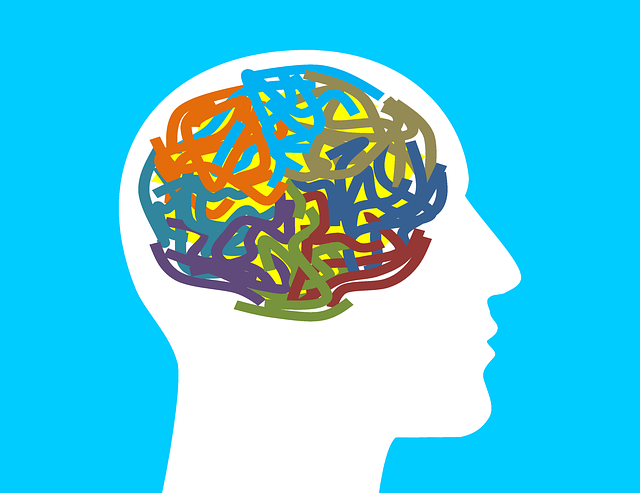In recent years, more and more studies have found that SSRIs (commonly called “antidepressants”) are only slightly better than placebo and that even this effect may be clinically insignificant. However, some proponents of the drugs argue that the scale most commonly used for measuring antidepressant effects, the Hamilton Depression Rating Scale (HDRS), is flawed and may not detect the real impact. Another scale, the Montgomery-Asberg Depression Rating Scale (MADRS), may more accurately identify improvements.
The current researchers, led by Michael P. Hengartner at the Zurich University of Applied Sciences, wanted to test this hypothesis. They compared the clinical trials using the HDRS to the clinical trials using the MADRS. But the experiments using the MADRS did not find a more substantial effect at all.
“Overall there was no difference between the HDRS-17 and the MADRS… Moreover, the drug-placebo differences in raw scores suggest that treatment effects are indeed marginally small and with questionable importance for the average patient.”
 The research was published online on November 12 as a preprint on the website for the Center for Open Science.
The research was published online on November 12 as a preprint on the website for the Center for Open Science.
The researchers used the clinical trials dataset that was used by Andrea Cipriani and other researchers in their extensive analysis of depression trials from last year. Consistent with previous research, Cipriani’s study found that antidepressant drugs were barely better than placebo, a difference that is unlikely to be clinically significant.
Hengartner and his research team compared the 109 trials that used the HDRS-17 to the 28 trials that used the MADRS. They found that there was no difference between the outcomes. Antidepressants were 2.07 points better than placebo on the HDRS, and 2.99 points better than placebo on the MADRS. Neither of those scores approaches the threshold for noticeable clinical improvement, which is 7 points on the HDRS and 8 points on the MADRS, according to the researchers.
So why compare the two measures? It comes back to a recent, strongly worded letter to the editor of Acta Neuropsychiatrica, written by Danish researcher Søren Dinesen Østergaard. Upset by recent findings that antidepressant effects are not clinically significant beyond the placebo effect, Østergaard wrote: “Do not blame the SSRIs, blame the Hamilton Depression Rating Scale.”
According to Østergaard, the HDRS is so flawed as to provide no relevant information about antidepressant effectiveness (Østergaard also offhandedly writes that the MADRS and the Beck Depression Inventory are just as flawed, although the letter does not provide any detail about why this would be so).
Østergaard concludes that researchers, as well as the FDA and other governing bodies, should only accept data using the HDRS-6, a shorter version of the scale that cherry-picks only the questions on the HDRS that seem to find antidepressants to be effective consistently.
However, as there are very few studies using that measure, Østergaard is arguing that we should disregard the bulk of the existing research on whether antidepressants are effective or not. Østergaard suggests that after we throw out all these other measures—and with them, the vast majority of research on antidepressants—we will find that antidepressants are far more effective than previous research indicates.
Nonetheless, other researchers suggest that the MADRS is not flawed in the same way as the HDRS. Instead, the MADRS may be the best option for measuring improvement in depression symptoms.
The HDRS has been criticized for poor validity, having wide-ranging questions that may be linked to anxiety and not depression, and accidentally measuring the harmful physical effects of antidepressants.
But the MADRS has none of these issues. It measures only the experiences considered core symptoms of depression and is considered to have generally good validity. Researchers have favorably compared it to the HDRS-6, despite Østergaard’s statement to the contrary. For these reasons, it’s considered the “gold standard” rating scale for depression.
Hengartner’s finding that the MADRS and HDRS-17 result in similar efficacy rates—and a lack of clinically significant improvement—suggests that it’s not a rating scale problem. Perhaps this issue is drug effectiveness and not the rating scales.
****
Hengartner, M. P., Jakobsen, J. C., Sørensen, A., & Plöderl, M. (2019, November 12). Efficacy of new-generation antidepressants assessed with the Montgomery-Asberg Depression Rating Scale, the gold standard clinician rating scale: A meta-analysis of randomized placebo-controlled trials. DOI: 10.31219/osf.io/3tuzy (Link)















True psychiatry in action- trying to make an ineffective treatment worthwhile by doctoring rating scales. Assuming that depressions may have multiple sources is still too much for the psychiatric “thought” leaders to grasp.
Report comment
i beg to differ. ‘antidepressants’ -are- amazingly effective!
Prescribing real drugs to treat faux disorders is profitable for professionals and drug companies. Society as a whole benefits by pretending that perfectly understandable reactions to unbearable conditions is a “treatable disorder,” and therefore the answer is more emphasis on ‘treatment,’ not figuring out what the hell is going wrong, with everybody (and their mama) on ‘antidepressants.’
oh, and…the pills shut people up. If that doesn’t work…add more pills. Even if they ditch the pills, they’ve been silenced by psych ‘treatment,’ since the records will -never- be destroyed.
Report comment
Right, they’re just effective for something different than what we assume they intend. That’s where people get confused. They think that the goal is to make people better, when it’s actually to make themselves rich.
Report comment
You don’t even need a record by a shrink. A simple opinion by a physician will be enough to cause huge impacts. A bunch of sheisters, the lot of them. What a waste of taking up planetary space if all one can do is be suspicious of people, then label them, or drug them and not realizing for a moment that They, themselves in fact have a massive issue themselves. Really, how can anyone or any system be SO stupid, not bothering to look back at the truths that the doctors at auschwitz believed? How can they be so lacking not to be able to see themselves? Not questioning their dislike and hatred/mistreatment? Sure people will see a shrink sitting in his office handing out his vials of manufactured serotonin….giving you a really fancy label, but he looks not all that harmful does he. I am SO glad I have 2 kids who never went into professions where they can be nasty to people. In fact I suggested to stay away from relationships with anyone involved in any profession that is about some form of judging people. For my own kids mental health, you understand. 🙂
Report comment
Or, in words from the Holy Bible, “You hypocrite, first take the plank out of your own eye, and then you will see clearly to remove the speck from your brother’s eye.”
Report comment
The pills shut people up. The labels discredit whatever they can still say.
Report comment
I consumed tricyclic antidepressants for a number of years and found, starting them, being on them, and stopping them, made no difference to my mood whatsoever. But I hadn’t been clinically depressed to begin with!
Report comment
The Placebo Effect can be highly effective. Depression is a mood based on beliefs after all.
I think that’s why so many people who accept their MI status turn on the messenger. You’re spoiling their placebo effects.
Report comment
“Hengartner’s finding that the MADRS and HDRS-17 result in similar efficacy rates—and a lack of clinically significant improvement—suggests that it’s not a rating scale problem. Perhaps this issue is drug effectiveness and not the rating scales.”
Yes, the issue is a lack of drug effectiveness, in addition to the fact the antidepressants do harm, and this harm is tremendously profitable for the doctors, and the religions that own the hospitals.
Report comment
And yet in actual practice plenty of patients feel like their antidepressants are effective. As is often the case, actual reality differs from what the studies say. Which actual practicing psychiatric professionals know. Maybe you should hold off on criticizing medication until you have enough of a medical background to understand the nuances of psychiatric care.
Report comment
Anecdotal evidence can be useful, but these studies are controlled and more intentionally screen out “false positives” and “false negatives.” The placebo effect is a HUGE part of why some people find their antidepressants effective. There are also many who find them effective to start with and then the effectiveness fades over time. There are also many who start on ADs and then have trouble coming off due to withdrawal effects, and many of these are told that this is their “depression coming back” and proof that the ADs are “working.” And of course, there are some who derive actual benefit from them in terms of feeling better, however that may be defined.
Talking about understanding the “nuances of psychiatric care” is likely to be considered pretty insulting in this particular community, as most of the posters have been exposed to those “nuances” personally and can tell you a thing or two about just how “nuanced” the approach was in their particular case. I get that you have found ADs helpful for you or your clients, but it should be clear very quickly from reading these posts that this is NOT the case for everyone, and I think it would be wise to listen a little more to what people have to say about their own experiences before leaping to the conclusions that they “don’t understand” what psychiatric care is all about.
BTW, have you read Anatomy of an Epidemic yet? You really should read it. It is the basis for this entire site and community, and might open your eyes a bit to what people here are protesting. Hint: the use of medication is not the main issue.
Report comment
I think dr-reid-piz is a psychiatrist, Steve. Hence his decrying OUR lack of a medical background.
They “diagnose” us by our own admissions and drug us. When we tell them the drugs keep us from sleeping and cause terrifying hallucinations they joyfully tell our loved ones how hopelessly insane we are and that our lives are ruined. (No longer human.) Our fault when the pills cause that reaction.
Once they have damned us by our own words (usually) they make it so our words count for nothing. The only words that are to be taken seriously are those that show insight into our condition.
“Gee Dr. X, you’re so smart. Gee, these new pills make me feel great all the time. Yes I know I have Diagnosis X. It’s a bummer. Glad I have such a kind, smart doctor like you Dr. X.” All taken as proofs of how well we are doing.
Then we go home, depressed but too drugged to cry. Can’t stop suicidal thoughts. Barf our guts up or binge uncontrollably since we can’t feel full and sleep 12 hours in the HUD room we can’t clean. A happy, productive life according to psychiatry.
No other doctors blame patients for reactions to penicillin or anesthetic or pain pills. They immediately take them off.
Shrinks don’t seem to care if their “safe, effective treatments” cause grand mal seizures and heart attacks. Lost two friends that way. 🙁 Not like our lives count.
I know my GP diagnosed me with heart arrhythmia, IBD causing pernicious anemia, and prediabetes. All those real medical conditions are better now. And my weight is going down.
Psychiatry was slowly killing me. If it were anyone but the SMI being harmed this way psychiatrists would be treated like Farid Fata.
Report comment
Right Steve, Dr-Reid-Plz and every professional who pushes psych drugs MUST read Anatomy of an Epidemic!!
As far as the “nuances of psychiatric care” it’s not remotely scientific in any way!! Rather this alleged “care” is very simple-minded, irresponsible and harmful!
As a cancer patient sent to a psychiatrist for help with chemo and steroid induced insomnia the only “nuances of psychiatric care” I experienced are: lies, bullying, arrogance, deceit, blaming, judging, pushing pills, mocking you for side effects of psych pills and labelling damaging effects of toxic chemo as a “Somatization Disorder”.
Report comment
dr-reid-plz, Yes I have 3 friends who are all on some psych pill. All women, 2 diagnosed with BPD. They all say “ohh I can’t go without them, they saved my life”. YET, they still run into trouble when stressed, which was what got them onto pills to begin with. When people are suffering, nervous breakdowns, psychotic or whatever you want to name it, they go to safety. They want to get rid of that horrible anxiety or panic. People in extreme states, lose those extreme states without pills naturally, often. Once you are on pills, pills that messed with your brain and body, the states are often worse at first, then the state gets different or better which it would have anyway. When people try to get off meds, it causes in and of itself problems and that is where the shrink says, “see? you should have stayed on them” And the patient might think this makes sense. I would like to know why my friends still have low points if their pills are working. And I would like to know if Prozac was this great pill, why create new ones? Why continue to research and make new pills and deep brain stimulation, if the original pills were what was working? Why add more pills or higher dosages? Why would they make pills that enable people to commit suicide? Is that rational? They can hold you for talking about suicide, and then give you pills to do it with in a legal kind of way. Bottom line is, there would be no need to keep researching if the original drugs worked. It is marketing, nothing more. As the ads say “are you feeling sad? Zoloft “MAY” help you”. The reason they say “MAY”, is because there is no proof it does. Those people that got better would have gotten better anyway, because nothing in life is static. Often people quit their jobs when they experience stress, and feel better, not knowing it was their environment. How often do marriages break up and people end up feeling better. How often are people stuck in ruts, physically not well, poor, and if you fix those things, many feel better.
Report comment
No “patient” who knows what’s good for them ever complains about their pills. They never listen to anything we say unless it’s to praise them and their pills making us so dizzy we can’t walk, nauseated, unable to read, doubling our weight.
Psychiatrists for the most part hear what they want and attribute everything else to “lack of insight.”
Report comment
Yes Rachel, and if they don’t “hear (or observe) what they want” they simply lie and write fiction to fit with their agenda and labels etc.
Report comment
I think it’s time to start involuntarily detaining all the diabetics who have been rationing their insulin in the face of ever expanding profiteering by Pharma. They clearly show lack of insight into their disease and their risk of death increases if they don’t take their meds as prescribed. Then after we detain and hospitalize them against their will in a for profit general community hospital, preferably with a costly ambulance ride on the way, we should sue them in small claims court for the medical bills they can’t pay since they’re now forced to buy their insulin as prescribed by the Assisted Outpatient Treatment team. It’s such a brilliant plan, I’m surprised Pharma Bro didn’t think of it first!
Report comment
I was talking to my GP yesterday, the one who is antipsychiatry yet prescribes AD’s and such. We talked ‘pills’ and she said “pffft, none of the meds work”, yet she prescribes them. After 25 years, I like her as a human, but have seen her sides and I simply cannot make peace with her weakness and inability to speak up. It is all about that almighty belonging to a system.
Report comment